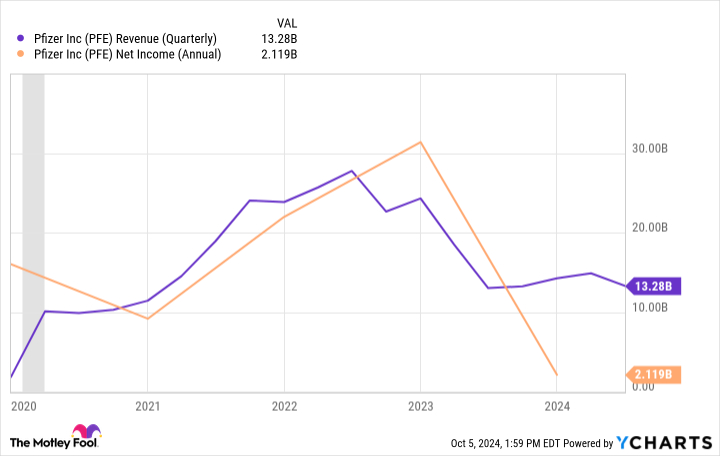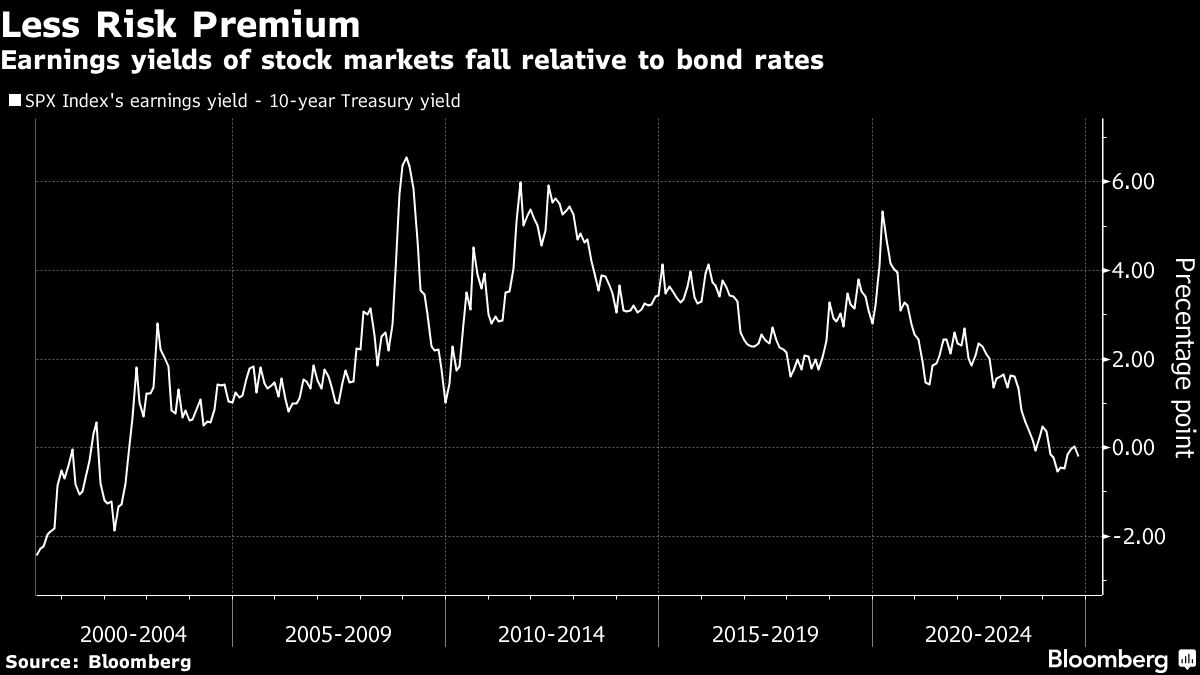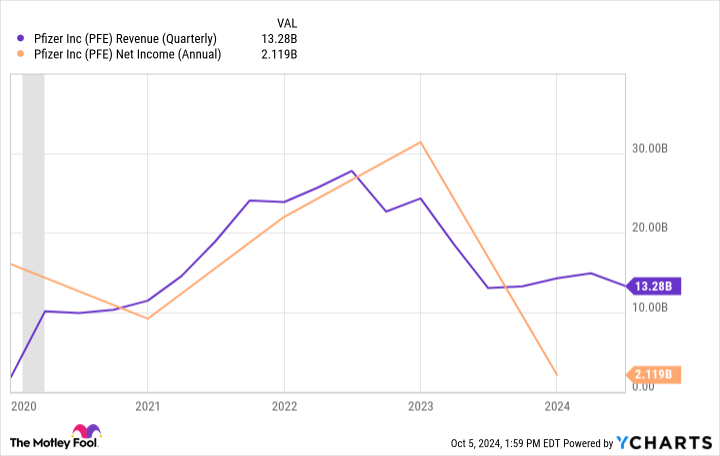Money
What do advisers want to see when they switch platforms?

 Selecting the right platform is a bit like building a house: if the foundations aren’t stable then you’re in serious trouble further down the line.
Selecting the right platform is a bit like building a house: if the foundations aren’t stable then you’re in serious trouble further down the line.
I’m increasingly seeing advisers considering switching platforms looking to financial stability as that key foundation stone from which to build.
Today’s advice platform market is characterised by oversupply and frequent regulatory change, leaving a key problem for advisers to overcome – long-term stability.
A financially robust platform reassures advisers their chosen provider will endure market consolidation, invest in continuous innovation and maintain high service levels, while being able to adequately adapt to the pace of regulatory change.
Financial stability is about more than survival; it’s about thriving in a competitive market
Consumer Duty further underscores the need to take a more long-term approach. Advisers must ensure their platform partners can consistently meet these regulatory expectations, safeguarding consistency in service quality and good client outcomes.
Financial stability is about more than survival; it’s about thriving in a competitive market.
A stable platform is not a static platform. Instead, it’s a reliable partner that adapts, supports advisers’ evolving needs and provides the infrastructure to keep pace with technological advancements.
Without assessing a platform’s financial stability and ability to invest in development, advisers risk partnering with a platform that could struggle to sustain service quality or keep up with industry innovations, potentially putting their client relationships and business growth at risk.
Contrary to some opinions, advisers are open to exploring new platforms, but they generally need a trigger to make such a significant switch
Contrary to some opinions, advisers are open to exploring new platforms, but they generally need a trigger to make such a significant switch.
Realistically, a firm will only shift large volumes of business when there’s a compelling reason — which are often realised by concerns about their current platform’s financial health and levels of investment.
Consistency of service, back-office connectivity, and digital automation and experience give advisers an edge in an industry where marginal gains can make a real difference.
If doubts arise about a platform’s financial security, advisers should question whether they will continue to see these cornerstones of platform efficiency maintained.
Switching usually requires significant push factors that prompt advisers to consider their options. These can include long call wait times, processing delays, transaction errors and lack of accountability, all problems that damage client relationships and erode trust.
Platform charges have increasingly become a secondary consideration
Platform charges have increasingly become a secondary consideration. Charges across the industry are highly competitive, and advisers now view them as relatively uniform. Instead of focusing solely on costs, advisers weigh charges against a broader range of factors, like digital experience, investment choice, service model and overall value for money.
Platform charges represent only a small portion of the total cost of advice, which includes adviser fees and investment management costs. So, with cost differences between platforms generally minimal and one eye on Consumer Duty, advisers are beginning to prioritise the long-term viability of a platform over short-term savings.
With a focus on value mandated by Consumer Duty, advisers are gravitating towards platforms that have greater resources at their disposal. These are more capable of investing in reliable service and support, which ultimately benefits clients and helps advisers to scale their businesses.
Why onboarding matters
A seamless onboarding experience is essential for affirming advisers’ confidence in their decision to switch platforms. This process is their first impression of the new platform and sets the tone for their platform experience.
A well-designed onboarding process should be efficient, transparent and supportive, according to the individual needs of advice firms. This process involves not just the technical aspects of transferring data and setting up accounts but also clear communication, training and ongoing support.
Delivering all this requires investment, not just at the start, but as part of a continuous review process.
Effective onboarding can transform what is seen as a daunting process into a smooth, positive experience
By minimising the friction involved in switching and providing comprehensive assistance during the transition, platforms can reduce perceived barriers to change.
This proactive approach instils a sense of trust and reliability, which fosters long-term loyalty, making advisers more likely to stay with the platform and recommend it to others. Effective onboarding can transform what is seen as a daunting process into a smooth, positive experience.
While multiple factors influence platform selection and switching, we are seeing the emergence of financial stability as a critical element.
In an era of market oversupply and rapid technological change, advisers are increasingly recognising and seeking out platforms that are operationally efficient and financially secure.
Understanding these dynamics allows platforms to better position themselves to meet the evolving needs of advice firms and their clients to deliver mutual future success.
Ranila Ravi-Burslem is intermediary distribution director at Scottish Widows
Money
Celebrity chef CLOSES seafront restaurant today after just three years as fans cry ‘we didn’t see it coming’

A CELEBRITY chef’s seafront restaurant is set to close today after three years of business.
Michael Caines has shocked fans after announcing he is selling not just one but two of his popular restaurants.
Mickeys Beach Bar and Restaurant in Exmouth opened in April 2021 but tonight after dinner, it will close for good.
It offered all-day coffee, drinks, afternoon tea, and casual dining with glorious views of Torquay to Berry Head and the English Channel.
The restaurant was one of the first businesses in Sideshore and loved by many.
Customers on Google Reviews described it as having “a lovely atmosphere”, with “great views”, “seamless” service and “delicious” food.
Now, after three and a half years, it has been sold to someone else.
And not only this, Cafe Patisserie Glacerie, owned by Michael Caines and Sylvian Peltier will close too.
It is believed both restaurants have been sold to another local business, DevonLive reports.
Both venues will close in preparation for the site being sold.
In a statement Michael said: “On behalf of all the team we would like to thank our customers and suppliers for your support, we have thoroughly enjoyed serving each and every one of you and making Mickeys and the Café a special place to meet by the sea.
“I would also like to thank my team for their unwavering support and dedication, despite the challenging times we have had, I am proud of what we have been able to create.
“We are however delighted to announce the sale of the business to another local business operator who shares a similar passion, for fun relaxed dining.”
The Michael Caines Collection of restaurants said it will make another announcement once the sale is completed.
Customers have been redirected to Pool House Restaurant at Lympstone Manor hotel “for casual and relaxed dining”.
Disappointed locals took to Facebook to share their disappointment.
One person said: “Shame. Only decent place on the beach front.”
While a second wrote: “Good job we grabbed a drink when we did.”
A third person said: “A sad reflection of Exmouth, falling further into poverty.”
And a fourth commented: “Well! We didn’t see that coming!…”
Money
Government ‘doing its best to scare people’ into bad decisions


The Labour government “seems to be doing its best to scare people” into making bad decisions, according to Strategic Wealth Partners managing director and chartered financial planner Amyr Rocha Lima.
Speaking at Money Marketing Interactive in London yesterday (8 October), he told advisers to expect more phone calls ahead of the Budget.
“Even our most well behaved and responsible clients will reach out to us,” Lima said.
However, “if your clients do not reach out to you in the run-up to the Budget, you should reach out to them,” he added.
Triple Point retail strategy director Diana French, speaking on the same panel as Lima, said the backdrop for this Budget includes tax at its highest level since 1949.
“The tax environment is hard at the moment and is likely to get harder,” she said. “I do really feel like tax is a big conversation right now.”
Lima said regardless of what is announced in the Budget, it is “important we treat people as human beings.”
During the panel discussion, French also spoke positively about venture capital trusts (VCTs).
VCTs are investment vehicles that were set up to promote investment in small UK businesses that meet certain criteria.
To encourage support for these businesses, the government offer generous tax benefits..
In September 2023, French told Money Marketing that VCTs “are becoming a part of regular [financial] advice”.
French added that VCTs give investors access to companies that can grow very quickly.
Triple Point is a purpose-led investment management house that supports financial advisers, but does not actually provide advice to investors itself.
Industry duo Lima and Ian Cooke launched Strategic Wealth Partners, a financial planning practice targeted at high-net-worth clients across the UK.
CryptoCurrency
DOJ’s Google breakup remedy puts tech world on notice

The US Justice Department said in a new court filing that it may recommend a break up of Google (GOOG, GOOGL) as an antidote to unhealthy competition in the search engine market, showing just how far Washington is willing to go to rein in Big Tech.
DOJ lawyers used a 32-page document to outline a framework of options for DC District Court Judge Amit Mehta to consider, including “behavioral and structural remedies that would prevent Google from using products such as Chrome, Play, and Android to advantage Google search.”
Google in a blog post said that “DOJ’s radical and sweeping proposals risk hurting consumers, businesses, and developers.”
Its stock fell slightly in pre-market trading Wednesday.
The proposal is the first step from the Justice Department to break up a tech empire since it tried to do so more than two decades ago with Microsoft (MSFT).
That case — which the DOJ referenced in its Tuesday court filing — resulted in a 2002 settlement that opened the door to broader competition in the internet browser software market.
The move by DOJ also sends a signal to other tech giants currently facing antitrust cases from DOJ and other Washington regulators as part of a wide-ranging effort by the Biden administration to rein in what it views as anticompetitive behavior across a number of industries.
The administration has already alleged anticompetitive conduct against tech giants Apple (AAPL) and Amazon (AMZN) and claimed that Microsoft’s acquisition of gaming giant Activision Blizzard would create a gaming market monopoly.
The case against Google targeting its dominance in search resulted in a landmark decision in August, where DC District Court Judge Amit Mehta sided with DOJ and concluded Google illegally monopolized the online search engine market and the market for search text advertising.
Mehta concluded that Google’s agreements with browser providers and devices powered by Google’s Android operating system stifled rivals from entering and growing within the markets.
It will now be up to Mehta to decide what should happen now in a separate “remedies” phase of the trial that will likely start in 2025.
DOJ is expected to provide a more detailed document by Nov. 20 outlining these remedies. But the 32-page document filed late Tuesday offers several points of focus beyond forcing Google to sell parts of its business.
One has to do with contracts that secure Google’s search engine as a default on internet browsers and internet-connected devices that use Google’s Android operating system.
Google pays as much as $26 billion per year to maintain its position on mobile devices like Apple (AAPL) and Samsung smartphones.
Justice Department lawyers said to prevent further harm they may seek to limit or terminate Google’s use of those contracts that use Chrome, Play and Android to advantage Google search, as well as “other revenue-sharing arrangements related to search and search-related products, potentially with or without the use of a choice screen.”
The DOJ could also ask the judge to force Google to share with rival browsers and search providers the data that it uses to refine its search algorithms, and limit the company’s dominance over search text ads.
DOJ suggested the judge should also consider blocking Google from illegally monopolizing related markets, in addition to the search and search text advertising markets.
It may ask the judge to force Google to give websites more ability to “opt out” of “any Google-owned artificial-intelligence product.”
Google pushed back on the DOJ’s suggestions.
“We believe that today’s blueprint goes well beyond the legal scope of the Court’s decision about Search distribution contracts,” Lee-Anne Mulholland, Google’s vice president of regulatory affairs, wrote in a blog post.
Google has promised to appeal. And Judge Mehta could hold off on any orders to alter Google’s behavior while it challenges his ruling in D.C.’s Circuit Court of Appeals.
The judge would lose the right to impose remedies if Google is found not to have broken the law on appeal.
And even if Google fails and is ordered to change its behavior, Judge Mehta could later adjust his orders to better ensure competition is restored.
Google faces antitrust challenges on other fronts. It is currently defending itself in a separate lawsuit from DOJ alleging a monopoly in the technology used to but and sell online ads.
And earlier this week another federal judge ordered Google to open up its app store as part of the resolution of a suit brought by Epic Games Inc.
DOJ cited that ruling in its Tuesday court filing that outlined a Google breakup as one possible remedy, noting that the judge in the Epic Games case said remedies should “bridge to moat” to combat network effects.
Click here for the latest technology news that will impact the stock market
Read the latest financial and business news from Yahoo Finance
CryptoCurrency
Everything HBO’s Bitcoin doc got wrong about Peter Todd and Satoshi


HBO’s “Money Electric” suggests Bitcoin developer Peter Todd is Satoshi Nakamoto, but contradictions and timeline errors abound.
CryptoCurrency
Billionaire Ken Griffin Just Bought 7.9 Million Shares of This Beaten-Down Pharmaceutical Stock as It Eyes the Weight Loss Market

Each quarter, hedge funds that manage over $100 million are required to file a Form 13F with the Securities and Exchange Commission (SEC). These filings break down which stocks investment firms bought and sold during the most recent quarter.
Ken Griffin is a billionaire investor who serves as CEO of the hedge fund Citadel. Last quarter, Citadel bought 7.9 million shares of Pfizer (NYSE: PFE) — increasing its stake in the pharmaceutical giant by 63%.
The last few years have featured a lot of ups and downs for Pfizer. While shares have posted break-even returns so far in 2024, Pfizer stock has cratered by more than 30% over the last three years.
Below, I’ll outline some of the bigger factors that have been weighing on Pfizer while also sharing my thoughts on what may have influenced Citadel to load up on the stock.
What is causing Pfizer stock to drop?
I see three major influences that have contributed to Pfizer’s beaten-down stock price.
1. COVID-19: Along with Moderna and Johnson & Johnson, Pfizer played an instrumental role in developing vaccines that combated the COVID-19 virus. In the chart below, the grey shaded column represents the short-lived COVID-19 recession.
Between 2020 and 2022, Pfizer’s revenue and profits soared thanks in large part to the company’s COVID-related medications, Comirnaty and Paxlovid. However, since the fourth quarter of 2022, Pfizer’s growth has witnessed a noticeable deceleration due to falling demand for these COVID treatments as the world emerged from peak pandemic conditions.
2. Acquisitions: In an effort to combat stalling growth and diversify its product offerings, Pfizer acquired oncology specialist Seagen for $43 billion back in December 2023. While revenue from Seagen will help offset the declining sales of Comirnaty and Paxlovid, acquisitions often take years of integration efforts before they are fully accretive.
3. Road map: One risk to always keep in mind with pharmaceutical stocks is that these companies face patent cliffs on their medications. Over the next few years, Pfizer expects to face patent challenges over some of its biggest drugs, including Eliquis, Ibrance, Prevnar 13, and Xtandi. Although it’s difficult to know how much Pfizer’s growth will be impacted as generic alternatives to these treatments hit the market, the company could very well lose out on billions in sales.
Something else may be lingering in the background
Considering sales from Pfizer’s blockbuster COVID treatments are declining combined with billions more in revenue at stake thanks to expiring patents, what else can Pfizer do to offset these risks besides inorganic growth derived from acquisitions?
One hot area in the healthcare realm that Pfizer has been eyeing for some time is weight loss. Glucagon-like peptide-1 (GLP-1) agonists such as Ozempic, Wegovy, Rybelsus, Saxenda, Mounjaro, and Zepbound have been transformative growth drivers for their developers, Novo Nordisk and Eli Lilly.
The global total addressable market (TAM) for GLP-1s is expected to reach $100 billion by 2030, according to research from Goldman Sachs. Although Lilly and Novo Nordisk dominate the GLP-1 space at the moment, a number of other pharmaceutical companies of varying sizes are competing to break into the market.
While it’s still early days for Pfizer’s GLP-1 candidate, Danuglipron, recent clinical testing has indicated the drug is well tolerated.
The bottom line
Considering the unknowns surrounding Pfizer’s business as it relates to offset declining sales from COVID medications, the vulnerability presented by patent cliffs, and the multi-year timeline surrounding large-scale acquisitions, I’m not surprised to see Pfizer stock continue sliding.
Right now, Pfizer trades at a forward price-to-earnings (P/E) multiple of just 10.8. To put this into perspective, this is less than half of the S&P 500 index’s forward P/E multiple of 23.2.
I think the current trading activity surrounding Pfizer stock paints a clear picture; many investors are thinking about the short-term risks instead of longer-term prospects. Another way of looking at it is that the potential gains from Danuglipron combined with growth from Seagen could more than offset any losses from other medications in the long term.
Pfizer’s contracting valuation and its potential to enter the new markets may be what is compelling Citadel to continue buying the stock.
With all of this said, it is going to take years before Pfizer hits its stride in the oncology treatment market. Moreover, there is no guarantee that its ambitions in the weight loss realm will ever come to fruition, as much more testing with the Food and Drug Administration (FDA) will be required before Danuglipron potentially hits the market.
Should you invest $1,000 in Pfizer right now?
Before you buy stock in Pfizer, consider this:
The Motley Fool Stock Advisor analyst team just identified what they believe are the 10 best stocks for investors to buy now… and Pfizer wasn’t one of them. The 10 stocks that made the cut could produce monster returns in the coming years.
Consider when Nvidia made this list on April 15, 2005… if you invested $1,000 at the time of our recommendation, you’d have $814,364!*
Stock Advisor provides investors with an easy-to-follow blueprint for success, including guidance on building a portfolio, regular updates from analysts, and two new stock picks each month. The Stock Advisor service has more than quadrupled the return of S&P 500 since 2002*.
*Stock Advisor returns as of October 7, 2024
Adam Spatacco has positions in Eli Lilly and Novo Nordisk. The Motley Fool has positions in and recommends Goldman Sachs Group and Pfizer. The Motley Fool recommends Johnson & Johnson, Moderna, and Novo Nordisk. The Motley Fool has a disclosure policy.
Billionaire Ken Griffin Just Bought 7.9 Million Shares of This Beaten-Down Pharmaceutical Stock as It Eyes the Weight Loss Market was originally published by The Motley Fool
CryptoCurrency
Bill Gross Recommends Shift to Defensive Stocks as Rally Loses Steam

(Bloomberg) — The rally that’s helped US stocks almost double in value over the past five years is tapering off, and investors should expect low but positive returns on their investments, according to Bill Gross.
Most Read from Bloomberg
The billionaire investor recommends keeping exposure to the stock market at average levels, while focusing portfolios more on defensive stocks with a small position in bonds.
“No bear market, but it’s not the same bull market anymore,” Gross, the co-founder and former chief investment officer of Pacific Investment Management Co., wrote in his latest investment outlook.
Gross’s comments add to a steady drumbeat of warnings the furious rally that’s pushed the S&P 500 to record highs may be running out of steam. A small-but-growing cohort of market watchers have cast doubt on the AI frenzy, which has been one of the biggest contributors to the surge in stocks, while others have warned that the forthcoming US presidential election could test investor optimism.
In the note, Gross lists negative headwinds, such as high valuations, geopolitical risks and an unsustainable government deficit, against positives forces, including inflation nearer to the Federal Reserve’s target and AI investment spending.
Among the negatives, Gross also cited potential increases in corporate taxes if Democrat Kamala Harris wins the election on Nov. 5 and her party takes a majority in Congress. Reports that Warren Buffett is now hoarding a record amount of cash also serve as a warning about the “bumpy road ahead,” Gross said.
Gross retired from the money-management business in 2019 and has since shared investment thoughts and trade ideas on his website and social media.
Gross’s favorite investments include Annaly Capital Management, a high-yielding mortgage REIT, DWS Municipal Income Trust, a close-end muni fund, and master limited partnerships (MLPs), which are tied to oil and gas contracts. He also likes Allete Inc, a utility company that is a buyout target.
Most Read from Bloomberg Businessweek
©2024 Bloomberg L.P.
-

 Womens Workouts2 weeks ago
Womens Workouts2 weeks ago3 Day Full Body Women’s Dumbbell Only Workout
-

 Science & Environment3 weeks ago
Science & Environment3 weeks agoHow to unsnarl a tangle of threads, according to physics
-

 Science & Environment3 weeks ago
Science & Environment3 weeks agoHyperelastic gel is one of the stretchiest materials known to science
-

 Technology3 weeks ago
Technology3 weeks agoWould-be reality TV contestants ‘not looking real’
-

 Science & Environment3 weeks ago
Science & Environment3 weeks ago‘Running of the bulls’ festival crowds move like charged particles
-

 Science & Environment3 weeks ago
Science & Environment3 weeks agoMaxwell’s demon charges quantum batteries inside of a quantum computer
-

 News2 weeks ago
News2 weeks agoOur millionaire neighbour blocks us from using public footpath & screams at us in street.. it’s like living in a WARZONE – WordupNews
-

 Science & Environment3 weeks ago
Science & Environment3 weeks agoSunlight-trapping device can generate temperatures over 1000°C
-
News3 weeks ago
the pick of new debut fiction
-

 Science & Environment3 weeks ago
Science & Environment3 weeks agoHow to wrap your mind around the real multiverse
-

 Science & Environment3 weeks ago
Science & Environment3 weeks agoQuantum ‘supersolid’ matter stirred using magnets
-

 Science & Environment3 weeks ago
Science & Environment3 weeks agoLiquid crystals could improve quantum communication devices
-

 Science & Environment3 weeks ago
Science & Environment3 weeks agoITER: Is the world’s biggest fusion experiment dead after new delay to 2035?
-

 Science & Environment3 weeks ago
Science & Environment3 weeks agoQuantum forces used to automatically assemble tiny device
-

 Science & Environment3 weeks ago
Science & Environment3 weeks agoPhysicists are grappling with their own reproducibility crisis
-

 Science & Environment3 weeks ago
Science & Environment3 weeks agoWhy this is a golden age for life to thrive across the universe
-

 News3 weeks ago
News3 weeks agoYou’re a Hypocrite, And So Am I
-

 Sport3 weeks ago
Sport3 weeks agoJoshua vs Dubois: Chris Eubank Jr says ‘AJ’ could beat Tyson Fury and any other heavyweight in the world
-

 Science & Environment3 weeks ago
Science & Environment3 weeks agoTime travel sci-fi novel is a rip-roaringly good thought experiment
-

 Science & Environment3 weeks ago
Science & Environment3 weeks agoLaser helps turn an electron into a coil of mass and charge
-

 Science & Environment3 weeks ago
Science & Environment3 weeks agoCaroline Ellison aims to duck prison sentence for role in FTX collapse
-
Business2 weeks ago
Eurosceptic Andrej Babiš eyes return to power in Czech Republic
-

 Science & Environment3 weeks ago
Science & Environment3 weeks agoNuclear fusion experiment overcomes two key operating hurdles
-

 Science & Environment3 weeks ago
Science & Environment3 weeks agoNerve fibres in the brain could generate quantum entanglement
-

 News3 weeks ago
News3 weeks ago▶️ Hamas in the West Bank: Rising Support and Deadly Attacks You Might Not Know About
-

 Technology2 weeks ago
Technology2 weeks ago‘From a toaster to a server’: UK startup promises 5x ‘speed up without changing a line of code’ as it plans to take on Nvidia, AMD in the generative AI battlefield
-

 Football2 weeks ago
Football2 weeks agoFootball Focus: Martin Keown on Liverpool’s Alisson Becker
-

 Science & Environment3 weeks ago
Science & Environment3 weeks agoRethinking space and time could let us do away with dark matter
-

 News3 weeks ago
News3 weeks ago▶️ Media Bias: How They Spin Attack on Hezbollah and Ignore the Reality
-

 Science & Environment2 weeks ago
Science & Environment2 weeks agoX-rays reveal half-billion-year-old insect ancestor
-

 MMA2 weeks ago
MMA2 weeks agoConor McGregor challenges ‘woeful’ Belal Muhammad, tells Ilia Topuria it’s ‘on sight’
-
Business2 weeks ago
Should London’s tax exiles head for Spain, Italy . . . or Wales?
-

 Science & Environment3 weeks ago
Science & Environment3 weeks agoA new kind of experiment at the Large Hadron Collider could unravel quantum reality
-

 Science & Environment3 weeks ago
Science & Environment3 weeks agoA slight curve helps rocks make the biggest splash
-

 News3 weeks ago
News3 weeks agoNew investigation ordered into ‘doorstep murder’ of Alistair Wilson
-

 News3 weeks ago
News3 weeks agoIsrael strikes Lebanese targets as Hizbollah chief warns of ‘red lines’ crossed
-

 Science & Environment3 weeks ago
Science & Environment3 weeks agoFuture of fusion: How the UK’s JET reactor paved the way for ITER
-

 Technology2 weeks ago
Technology2 weeks agoQuantum computers may work better when they ignore causality
-

 Science & Environment3 weeks ago
Science & Environment3 weeks agoUK spurns European invitation to join ITER nuclear fusion project
-

 Science & Environment3 weeks ago
Science & Environment3 weeks agoWhy we need to invoke philosophy to judge bizarre concepts in science
-

 CryptoCurrency3 weeks ago
CryptoCurrency3 weeks agoCardano founder to meet Argentina president Javier Milei
-
News3 weeks ago
The Project Censored Newsletter – May 2024
-

 News2 weeks ago
News2 weeks agoWhy Is Everyone Excited About These Smart Insoles?
-

 Science & Environment2 weeks ago
Science & Environment2 weeks agoMeet the world's first female male model | 7.30
-

 Technology2 weeks ago
Technology2 weeks agoRobo-tuna reveals how foldable fins help the speedy fish manoeuvre
-

 Technology2 weeks ago
Technology2 weeks agoGet ready for Meta Connect
-

 Health & fitness2 weeks ago
Health & fitness2 weeks agoThe 7 lifestyle habits you can stop now for a slimmer face by next week
-

 Sport2 weeks ago
Sport2 weeks agoWatch UFC star deliver ‘one of the most brutal knockouts ever’ that left opponent laid spark out on the canvas
-

 Health & fitness3 weeks ago
Health & fitness3 weeks agoThe maps that could hold the secret to curing cancer
-

 Technology3 weeks ago
Technology3 weeks agoThe ‘superfood’ taking over fields in northern India
-

 Science & Environment3 weeks ago
Science & Environment3 weeks agoA tale of two mysteries: ghostly neutrinos and the proton decay puzzle
-

 CryptoCurrency3 weeks ago
CryptoCurrency3 weeks agoLow users, sex predators kill Korean metaverses, 3AC sues Terra: Asia Express
-
Politics3 weeks ago
UK consumer confidence falls sharply amid fears of ‘painful’ budget | Economics
-

 Womens Workouts3 weeks ago
Womens Workouts3 weeks agoBest Exercises if You Want to Build a Great Physique
-

 Womens Workouts3 weeks ago
Womens Workouts3 weeks agoEverything a Beginner Needs to Know About Squatting
-

 News2 weeks ago
News2 weeks agoFour dead & 18 injured in horror mass shooting with victims ‘caught in crossfire’ as cops hunt multiple gunmen
-

 Womens Workouts2 weeks ago
Womens Workouts2 weeks ago3 Day Full Body Toning Workout for Women
-

 News3 weeks ago
News3 weeks agoChurch same-sex split affecting bishop appointments
-

 Sport3 weeks ago
Sport3 weeks agoUFC Edmonton fight card revealed, including Brandon Moreno vs. Amir Albazi headliner
-

 CryptoCurrency3 weeks ago
CryptoCurrency3 weeks agoEthereum is a 'contrarian bet' into 2025, says Bitwise exec
-

 Health & fitness3 weeks ago
Health & fitness3 weeks agoThe secret to a six pack – and how to keep your washboard abs in 2022
-
Business3 weeks ago
JPMorgan in talks to take over Apple credit card from Goldman Sachs
-

 Science & Environment3 weeks ago
Science & Environment3 weeks agoQuantum time travel: The experiment to ‘send a particle into the past’
-

 Science & Environment3 weeks ago
Science & Environment3 weeks agoBeing in two places at once could make a quantum battery charge faster
-

 CryptoCurrency3 weeks ago
CryptoCurrency3 weeks agoBitcoin miners steamrolled after electricity thefts, exchange ‘closure’ scam: Asia Express
-

 CryptoCurrency3 weeks ago
CryptoCurrency3 weeks agoDorsey’s ‘marketplace of algorithms’ could fix social media… so why hasn’t it?
-

 CryptoCurrency3 weeks ago
CryptoCurrency3 weeks agoDZ Bank partners with Boerse Stuttgart for crypto trading
-

 CryptoCurrency3 weeks ago
CryptoCurrency3 weeks agoBitcoin bulls target $64K BTC price hurdle as US stocks eye new record
-

 CryptoCurrency3 weeks ago
CryptoCurrency3 weeks agoBlockdaemon mulls 2026 IPO: Report
-

 TV2 weeks ago
TV2 weeks agoCNN TÜRK – 🔴 Canlı Yayın ᴴᴰ – Canlı TV izle
-

 Science & Environment2 weeks ago
Science & Environment2 weeks agoCNN TÜRK – 🔴 Canlı Yayın ᴴᴰ – Canlı TV izle
-

 Servers computers2 weeks ago
Servers computers2 weeks agoWhat are the benefits of Blade servers compared to rack servers?
-

 Technology2 weeks ago
Technology2 weeks agoIs sharing your smartphone PIN part of a healthy relationship?
-

 News2 weeks ago
News2 weeks agoUS Newspapers Diluting Democratic Discourse with Political Bias
-

 Technology2 weeks ago
Technology2 weeks agoThe best robot vacuum cleaners of 2024
-
Business1 week ago
Ukraine faces its darkest hour
-

 Politics3 weeks ago
Politics3 weeks agoTrump says he will meet with Indian Prime Minister Narendra Modi next week
-

 Science & Environment3 weeks ago
Science & Environment3 weeks agoHow one theory ties together everything we know about the universe
-

 News3 weeks ago
News3 weeks agoBrian Tyree Henry on voicing young Megatron, his love for villain roles
-

 Science & Environment3 weeks ago
Science & Environment3 weeks agoTiny magnet could help measure gravity on the quantum scale
-

 Science & Environment3 weeks ago
Science & Environment3 weeks agoHow do you recycle a nuclear fusion reactor? We’re about to find out
-

 CryptoCurrency3 weeks ago
CryptoCurrency3 weeks agoDecentraland X account hacked, phishing scam targets MANA airdrop
-

 CryptoCurrency3 weeks ago
CryptoCurrency3 weeks agoRedStone integrates first oracle price feeds on TON blockchain
-

 CryptoCurrency3 weeks ago
CryptoCurrency3 weeks ago‘No matter how bad it gets, there’s a lot going on with NFTs’: 24 Hours of Art, NFT Creator
-
Business3 weeks ago
Thames Water seeks extension on debt terms to avoid renationalisation
-
Business3 weeks ago
How Labour donor’s largesse tarnished government’s squeaky clean image
-
Politics3 weeks ago
‘Appalling’ rows over Sue Gray must stop, senior ministers say | Sue Gray
-

 News3 weeks ago
News3 weeks agoBrian Tyree Henry on voicing young Megatron, his love for villain roles
-

 CryptoCurrency3 weeks ago
CryptoCurrency3 weeks agoCoinbase’s cbBTC surges to third-largest wrapped BTC token in just one week
-

 MMA3 weeks ago
MMA3 weeks agoRankings Show: Is Umar Nurmagomedov a lock to become UFC champion?
-

 Travel2 weeks ago
Travel2 weeks agoDelta signs codeshare agreement with SAS
-

 Politics2 weeks ago
Politics2 weeks agoHope, finally? Keir Starmer’s first conference in power – podcast | News
-

 Technology3 weeks ago
Technology3 weeks agoiPhone 15 Pro Max Camera Review: Depth and Reach
-

 CryptoCurrency3 weeks ago
CryptoCurrency3 weeks agoCrypto scammers orchestrate massive hack on X but barely made $8K
-

 CryptoCurrency3 weeks ago
CryptoCurrency3 weeks agoSEC asks court for four months to produce documents for Coinbase
-

 CryptoCurrency3 weeks ago
CryptoCurrency3 weeks ago‘Silly’ to shade Ethereum, the ‘Microsoft of blockchains’ — Bitwise exec
-

 Womens Workouts3 weeks ago
Womens Workouts3 weeks agoHow Heat Affects Your Body During Exercise
-

 Womens Workouts3 weeks ago
Womens Workouts3 weeks agoKeep Your Goals on Track This Season
-

 Science & Environment3 weeks ago
Science & Environment3 weeks agoPhysicists have worked out how to melt any material
-

 Science & Environment3 weeks ago
Science & Environment3 weeks agoSingle atoms captured morphing into quantum waves in startling image





You must be logged in to post a comment Login